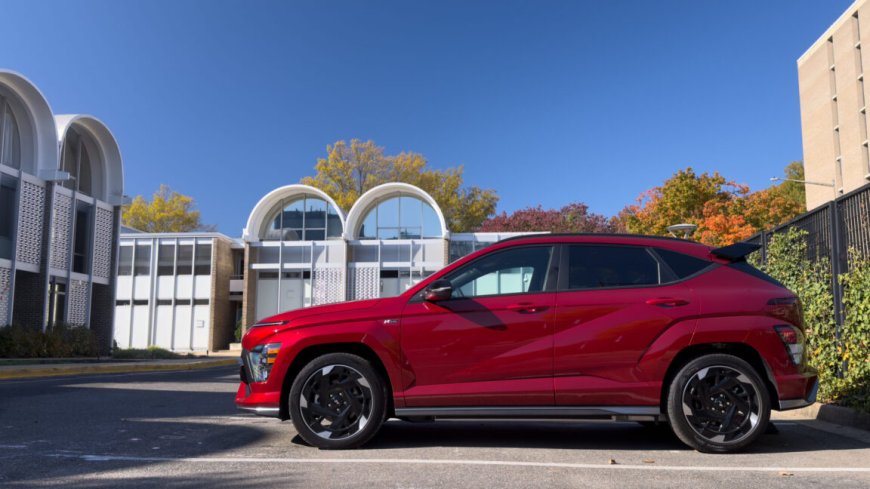Sick of supersized EVs? The 2025 Hyundai Kona Electric hits the spot.
It's not too big, it's not too heavy, and it's very, very efficient.

If conventional wisdom were to be believed, the car we're reviewing today should not exist. Automakers are only interested in making very big, very expensive electric vehicles, leaving nothing for people with normal-sized budgets and normal-sized needs. While it's true that those oversized EVs are overrepresented among new car launches, they aren't the only game in town. As an alternative, consider the Hyundai Kona Electric, which we last sampled in pre-pandemic times.
In fact, Kona Electric has changed quite a bit since we last drove one. Last year, an all-new model went on sale in North America, and it has carried over unchanged to its model year 2025 version. The range starts at $32,875 for the Kona Electric SE, which makes do with a 133 hp (99 kW) motor driving the front wheels, but the other trims offered—the $36,875 SEL, the $38,275 N Line (tested here), and the $41,050 Limited use a more powerful 201 hp (150 kW) motor. (All four have an identical 188 lb-ft (255 Nm) torque output.)
In terms of size and weight, the Kona Electric really is a refreshing change from EVs that are often approaching three tons. With its rear wing and slightly tweaked front, the N Line is 1.1 inches longer than the other Kona Electrics at 172.6 inches (4,384 mm) long. All Kona Electrics are 71.9 inches (1,826 mm) wide and 62 inches (1,575 mm) tall, with a 104.7-inch (2,659 mm) wheelbase. Curb weight is what counts as featherweight for an EV—3,880 lbs (1,760 kg).
What's Your Reaction?






































